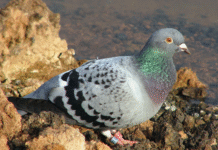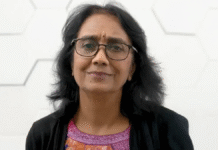THE Nobel Peace Prize 2020 is awarded to the World Food Programme (WFP) for their top notch contribution in combating hunger, preventing hunger being used as a weapon of war and as a tool in conflicts.
The Norwegian Nobel Committee had applauds WFP by giving this award as an acknowledgement of their priceless effort in combating hunger and promoting food security.
The committee said the WFP was selected as the winner for this prestigious award for its efforts to combat hunger, for its contribution to bettering conditions for peace in conflict-affected areas and for acting as a driving force in efforts to prevent the use of hunger as a weapon of war and conflict”.
The World Food Programme (WFP) is the world’s largest humanitarian organization in addressing hunger and food security. It is a well deserved award for WFP for their numerous noble works they have accomplished.
Head of WFP David Beasly said “I was literally for the first time in my life without words”. He also said “to receive this award is a recognition to the men and women at the World Food Programme who put their lives on the line every day for the struggling, suffering people around the world. So I hope this is a signal and a message that the World Food Programme is a role model and that we all have got to do more”.
In 2019, WFP was the helping hand to almost 100 million people in 88 countries who were victims of acute food insecurity and hunger. In 2015, eliminating hunger was listed as one of UN’s Sustainable Development Goal and WFP was utilised as a primary tool in achieving this goal by UN. However, in recent years the situation took a turn for the worse with data showing 135 million people suffering from acute hunger in 2019. It is the highest number in many years and sadly the increase in hunger statistics was caused by war and armed conflict.
Additionally, the coronavirus outbreak has increased the number of victims affected by hunger to rise sharply. The heart wrenching condition is people in countries like Yemen, Nigeria and South Sudan are pushed to the doorstep of starvation as a consequent of conflicts and the pandemic.
Regardless of fighting this pandemic, WFP has intensified its efforts to battle world hunger.
The organization has stated that “Until the day we have a vaccine, food is the best vaccine against chaos caused by the pandemic.”
WFP is proactively involved in combining humanitarian work with peace through pioneering projects in South America, Africa and Asia. The link between conflict and hunger was first addressed during the unanimous adoption of Resolution 2417 at the UN Security Council in May 2018 and WFP was involved actively in the diplomatic process.
Chairman of Nobel Committee Berit Reiss Anderson said with this year’s award they wish “to turn the eyes of the world to the millions of people who are still suffering from or face the threat of hunger”.
The World Food Programme plays a key role in engaging multiple stakeholders and creating dimensional cooperation on making food security a driving force of peace. WFP has made a strong contribution towards mobilising UN Member States to battle the use of hunger as a weapon of war and conflict. The organisation contributes effectively to advance the fraternity of nations referred in Alfred Nobel’s will. Being the UN’s largest instrument, the World Food Programme is a modern version of the peace congresses that the Nobel Peace Prize is intended to promote.
The Nobel Prize winner was announced on Oct 9 in the Nobel Prize website.
















